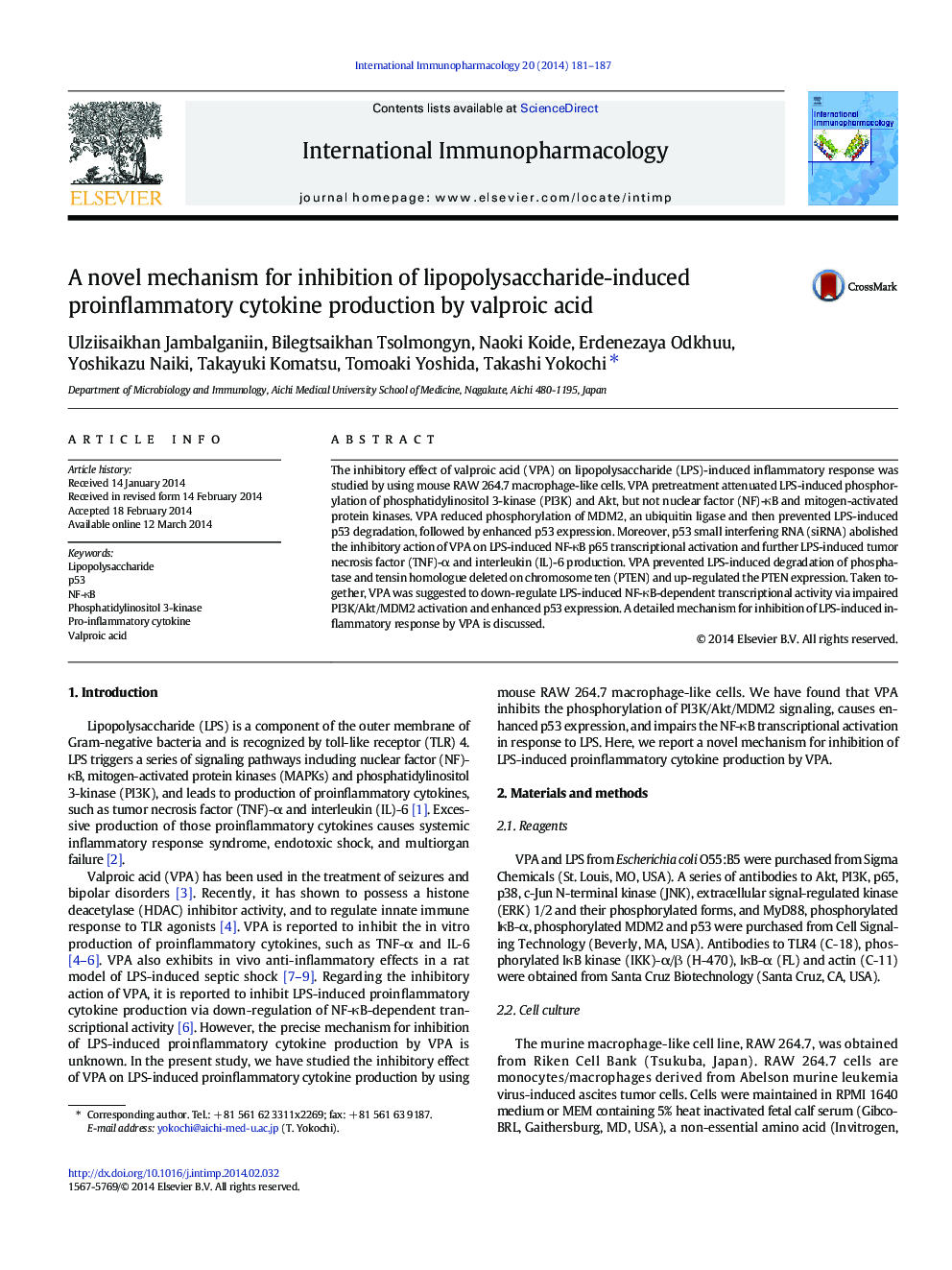| Article ID | Journal | Published Year | Pages | File Type |
|---|---|---|---|---|
| 5832831 | International Immunopharmacology | 2014 | 7 Pages |
â¢VPA inhibits LPS-induced activation of PI3K/Akt/MDM2 signaling.â¢VPA augments p53 expression via reduced degradation.â¢VPA inhibits NF-κB p65-dependent transcriptional activation in response to LPS.â¢VPA inhibits LPS-induced TNF-α and IL-6 production.
The inhibitory effect of valproic acid (VPA) on lipopolysaccharide (LPS)-induced inflammatory response was studied by using mouse RAW 264.7 macrophage-like cells. VPA pretreatment attenuated LPS-induced phosphorylation of phosphatidylinositol 3-kinase (PI3K) and Akt, but not nuclear factor (NF)-κB and mitogen-activated protein kinases. VPA reduced phosphorylation of MDM2, an ubiquitin ligase and then prevented LPS-induced p53 degradation, followed by enhanced p53 expression. Moreover, p53 small interfering RNA (siRNA) abolished the inhibitory action of VPA on LPS-induced NF-κB p65 transcriptional activation and further LPS-induced tumor necrosis factor (TNF)-α and interleukin (IL)-6 production. VPA prevented LPS-induced degradation of phosphatase and tensin homologue deleted on chromosome ten (PTEN) and up-regulated the PTEN expression. Taken together, VPA was suggested to down-regulate LPS-induced NF-κB-dependent transcriptional activity via impaired PI3K/Akt/MDM2 activation and enhanced p53 expression. A detailed mechanism for inhibition of LPS-induced inflammatory response by VPA is discussed.
